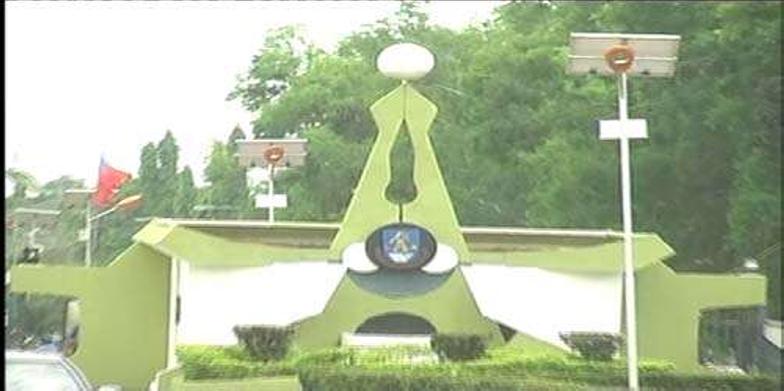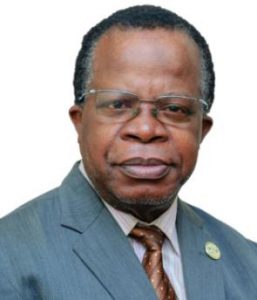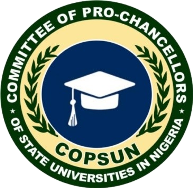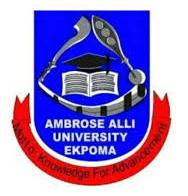Ambrose Alli University, Ekpoma


Chairman, Special Intervention Team
The origin of older universities in the developed world can be traced in Europe to as far back as twelfth century. Most of them developed from cathedral and monastery schools and other centres of learning under the guidance of academic leaders whose fame spread far beyond their immediate environment, enabling them to attract scholars and students from far and near. Their rates of development varied and it is sometime difficult to know when they actually became full fledged universities. The University of Bologna is believed to be the oldest having been founded in the early twelfth century even though it existed as a law school since the ninth century. The University of Paris with a slight different structure from that of Bologna developed in the late twelfth century. These schools and centres, which where founded mainly to serve the professions, provided unified teaching of law, medicine and theology providing Ministers of Religion and other statesmen and professionals. Some of these schools originated as break-away groups caused often by disagreements with the mode of instruction or content of curriculum in the host school.
With time, the control of the schools passed on to permanent bodies of administrators and the course of study were also broadened. University traditions are now well set out so that new Universities do not have to undergo all the stages of transformation provided the aims and objectives are clearly defined by the proprietors and operators. New Universities were established from time to time, because of the expansion of the older Universities may not be able to meet the varied needs and demands of potentials students but also for moral, political and a variety of reasons. They immediately began to function like the old ones as soon as structures are in place. Ambrose Alli University is one such new generation. Unlike the older Universities earlier mentioned, the story of Ambrose Alli University has similarities with many of the relatively younger Universities of the developing world whose establishment depended to a large extent on the vision and conviction of some political leaders who used persuasive and coercive strategies to overcome strong opposition to the implementation of what would normally be regarded as a people oriented development. As he often stated at different occasions in the planning stages and the on set of the University, Prof. Alli was very optimistic that posterity would justify his many decisions in the establishment of the University. There cannot be a better vindication of his optimism than the fact that the University which he established as Bendel State University, Ekpoma in 1981 (which after the creation of Edo State in 1992 had its name changed to Edo State University) has gone through an Act passed by the State House of Assembly and signed into law by the Executive Governor of Edo State, Chief Lucky Nosakhare Igbinedion in 1999 been renamed (Professor) Ambrose Alli University, Ekpoma, after the founder.
The idea of the University was firmly predicated on the dynamics of the rapid educational development through which the whole of Bendel State was undergoing in the late seventies and early eighties. Energized by the education policies which Prof. Ambrose Allli, the first Executive Governor of Bendel State was implementing at the time, education was rapidly becoming an industry in its own right in the State. There was a yawning gap in the available opportunities for teeming youths, to fulfil their educational aspirations at tertiary level. The number of potentially qualified University materials in our State far exceeded those in other States of the federation and the introduction of the quota system made matters worse. Even the University of Benin which started off as a State University (Midwest Institute of Technology) had been taken over by the Federal Government and made out of reach of most Bendelites.
A new State University appeared to be the only solution even though the idea of creating new Universities in the country was already generating controversy in several quarters. Two seemingly justifiable diametrically opposed viewpoints were seriously canvassed. One school of thought which castigates any additional University as ‘proliferation’ argued that the older Universities, be expanded to provide for increased enrolment to give time for proper planning of the establishment of new Universities. Against the quality control school is the counter view that many Universities were a necessity at the prevailing level of socio-economic and political development in our country. Universities serve as pragmatic instruments for provision of much needed manpower for rapid national development.
The issue of a second University in the State was even more compelling. The annual turnover of University material from secondary schools and other institutions was phenomenal. Yet, the Federal Government in a bid to achieve even educational development designated some States as ‘educationally disadvantaged’ and introduced measures which worked against the interests of students of Bendel State origin seeking admission to higher institutions or seeking scholarships or other financial assistance for their educational pursuits. In real terms, therefore, qualified first rate students of Bendel origin were being systematically rejected to make room for less qualified students of other States. The situation was bound to become more gloomy for Bendel indigenes when students benefiting from the widely liberalized policies at primary and secondary school level joined the admission market.
These factors led Governor Alli to constitute a ‘committee on the establishment of a Bendel State University and other Institutions’ on January 15th, 1981. the terms of reference were:
to explore the possibility of establishing different categories of institutions of higher learning in the State such as additional Polytechnics and Colleges of Industrial Technology,
the Faculties or Colleges of Education to be established in the proposed Bendel State University,
the structure of the University,
the curriculum of the various faculties or colleges, and
to examine such other relevant matters location, etc. and make appropriate recommendation. (This last item was however deleted from the Committee’s terms of reference on February 20th, 1981.
The committee had, as Chairman, Prof M. I. Ogbeide, Professor of Paediatrics and Director of Institute of Child Health, University of Benin. The other members were mostly academics of Bendel State origin including Prof. A. N. A. Imevbore, Professor of Biological Sciences, University of Ife (he could not serve due to ill health), Prof. S. A. Aluko, Professor of Economics and Economic Adviser to Ondo State Government, Prof. Obaro Ikime, Professor of History and Dean of Arts at the University of Ibadan, Prof. Itse Sagay, Visiting Professor of Law at the University of Benin, Dr. Bayo Akerele, Economic Adviser to Bendel State Government, Dr. Robson Momoh, Commissioner for Education, Bendel State, Dr. Union Edebiri, Senior Lecturer in French, Univesity of Lagos, Mr S. A. Kalulu, Senior Deputy Registrar, University of Ibadan, Dr. T. O. K. Audu, Associate Professor, Department of Chemical and Petroleum Engineering, University of Benin, Engr. P. A. Otaigbe, Project Engineer, Governor’s Office, Benin and Mr. Dickson Amagada, Director of Information, Governor’s Office, Benin, Dr. G. O. Oboh, Senior Research Officer, New Nigeria Bank, Benin was Secretary.
The committee in its report recommended the establishment of the Bendel State University and two institutions of Industrial Technology. The primary object of the University and other tertiary educational institutions is to provide educational opportunities, first and fore most, for the purpose of individual self development as follow-up of the initial program of universal education enabling everyone to exploit and understand the changing environment in which he or she has to live as a worthy consumer as well as participant in the matter of community and national development.
The Committee in its report also recommended the appointment of Governing Council, a Vice Chancellor and other Principal officers of the University. It also stressed the need for provision of infrastructural facilities.
The Committee recommended a collegiate structure in preference to faculty structure. Each College was to he headed by a Rector with its full compliment of administrative staff including Dean of Schools and Heads of Departments. There were to be eight Colleges in the take-off stage:
- College of Arts and Social Science
- College of Agriculture and Natural Resources
- College of Education
- College of Engineering and Technology
- College of Environmental Design
- College of Legal Studies
- College of Medical Science
- College of Natural Science
The acceptance of the report by Governor Ambrose Alli as followed by the preparation of a Bill to make provision for the establishment of the Bendel State University. It was sent to the House of Assembly where it generated prolonged turbulent debate and highly politicised controversy. Through persuasive and coercive means involving extended dialogue and interaction between executive and legislature, wise counsel prevailed and the University Bill was passed. The role of the Honourable Speaker, Chief Benson Alegbe as mediator to quell the turbulence is commendable. The bill was signed into Law on July 14, 1981.
- Total Enrollment : 38,000
- Undergraduate/Graduate ratio : NA
- No. of International Students : NA
- No. of Faculties : 14
- Student Faculty ratio : NA
- No. of Staff : 2,060
Courses/Programs
| Serial# | Title | Estimated Cost | Program type |
|---|


